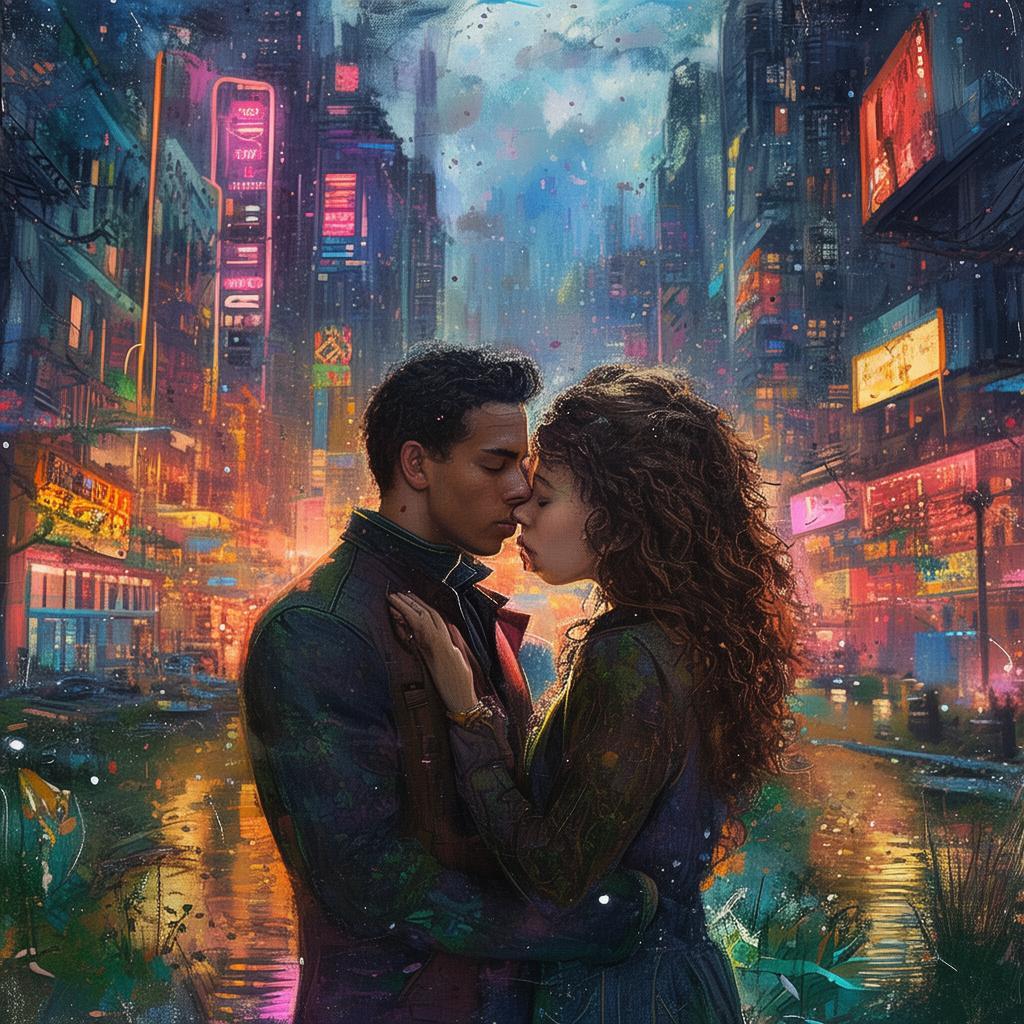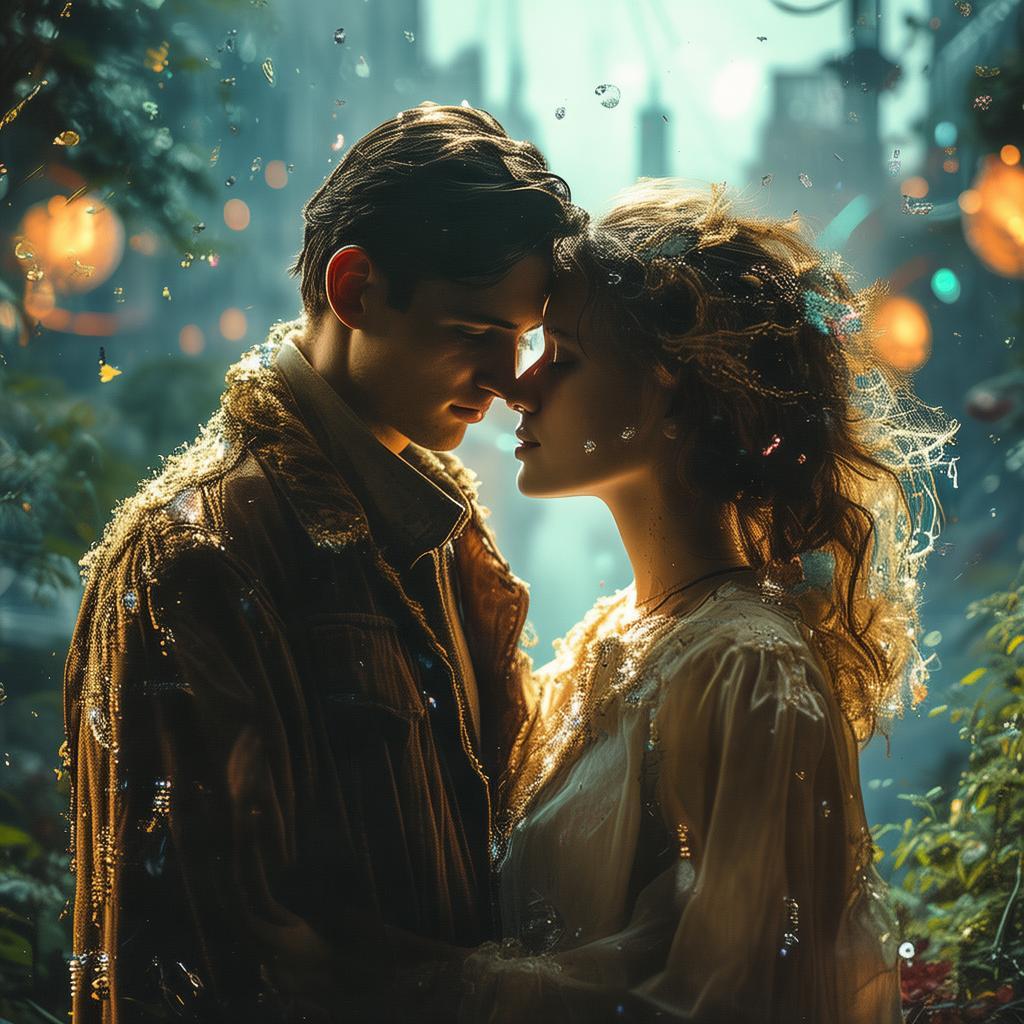The Nightingale's Lament: A Love Lost to the Call of Freedom
In the heart of a war-torn countryside, where the whisper of the nightingale could be mistaken for the call of freedom, there lived a young woman named Elara. Her voice was as enchanting as the melodies of the nightingale, and her spirit was as free as the wind that danced through the trees. Elara was a singer, a troubadour of love and hope, her songs echoing through the battlefield, soothing the hearts of the weary soldiers and the frightened villagers.
In the midst of chaos, there was a soldier named Theron, whose eyes were as blue as the skies that now harbored the bombers. He was a man of honor and duty, his heart heavy with the weight of the world he was sworn to protect. His path crossed with Elara's in the most unexpected of places—a makeshift hospital where the cries of the wounded mingled with the songs of the nightingale.
Their love blossomed in the harshest of conditions, a silent understanding that transcended words. They were the perfect match, each complementing the other's strengths and weaknesses. Elara's songs were his solace, and his unwavering courage was her strength. They were a beacon of hope in a world shrouded in despair.
But the nightingale's lament was a cruel omen. War, with its callous disregard for the hearts of the innocent, was not so easily swayed by love. Theron's duty called him away, and soon, Elara found herself alone, her heart heavy with the fear that he might never return.
The days turned into weeks, and weeks into months. Elara's songs grew more poignant, more desperate, as she awaited the return of her beloved. But fate had other plans. Theron's path took him to a distant land, a place where the nightingale's lament was a distant memory, and the call of freedom was but a distant hope.
In his absence, Elara's life was upended. The war had taken a toll on her village, and she was forced to take on a role she never imagined—leader. Her songs of love and freedom were now replaced with dirges of loss and sorrow. She became the voice of the people, a symbol of their resilience in the face of adversity.
One day, as she sang to a group of children huddled around her, a soldier approached. His eyes were filled with sorrow, and his hands trembled as he handed her a letter. The letter was from Theron, his final words to her, a testament to his love and his unwavering belief in their future.

Elara's heart shattered as she read the words. Theron had been captured, and his fate was uncertain. She knew that she must find him, that she must fight for his freedom. She left her village, her heart heavy with the weight of her love and the call of freedom.
Her journey was arduous, filled with danger and despair. She encountered betrayal, faced down death, and questioned her own resolve. But the love she shared with Theron, the love that had been lost to the call of freedom, fueled her every step.
Finally, she reached the prison where Theron was held. She found him, gaunt and weary, his spirit unbroken. As she held him in her arms, the nightingale's lament seemed to echo through the cells, a reminder of the love that had brought them together and the freedom that still called to them.
In that moment, Elara made a vow. She would free Theron, no matter the cost. She would fight for their love, for their freedom, and for the hope that the nightingale's lament had once brought to them.
Their escape was fraught with peril, but their love was their guide. They eluded their captors, navigating through the countryside, their hearts beating in unison. As they reached the safety of the woods, the nightingale's lament seemed to sing their victory, a reminder that love and freedom were more powerful than the chains of war.
Elara and Theron returned to their village, their love restored, their spirits unbroken. They stood together, their eyes reflecting the stars that now shone brightly in the night sky. The nightingale's lament had called them to freedom, and in each other, they found the strength to face the future.
The war raged on, but Elara and Theron's love was a testament to the resilience of the human spirit. They became symbols of hope, their story a reminder that even in the darkest of times, love and freedom could triumph.
And so, the nightingale's lament continued to sing, a timeless melody that echoed through the hearts of all who heard it. It was a reminder that love is the ultimate freedom, and that in the face of adversity, it is the most powerful force of all.
✨ Original Statement ✨
All articles published on this website (including but not limited to text, images, videos, and other content) are original or authorized for reposting and are protected by relevant laws. Without the explicit written permission of this website, no individual or organization may copy, modify, repost, or use the content for commercial purposes.
If you need to quote or cooperate, please contact this site for authorization. We reserve the right to pursue legal responsibility for any unauthorized use.
Hereby declared.









